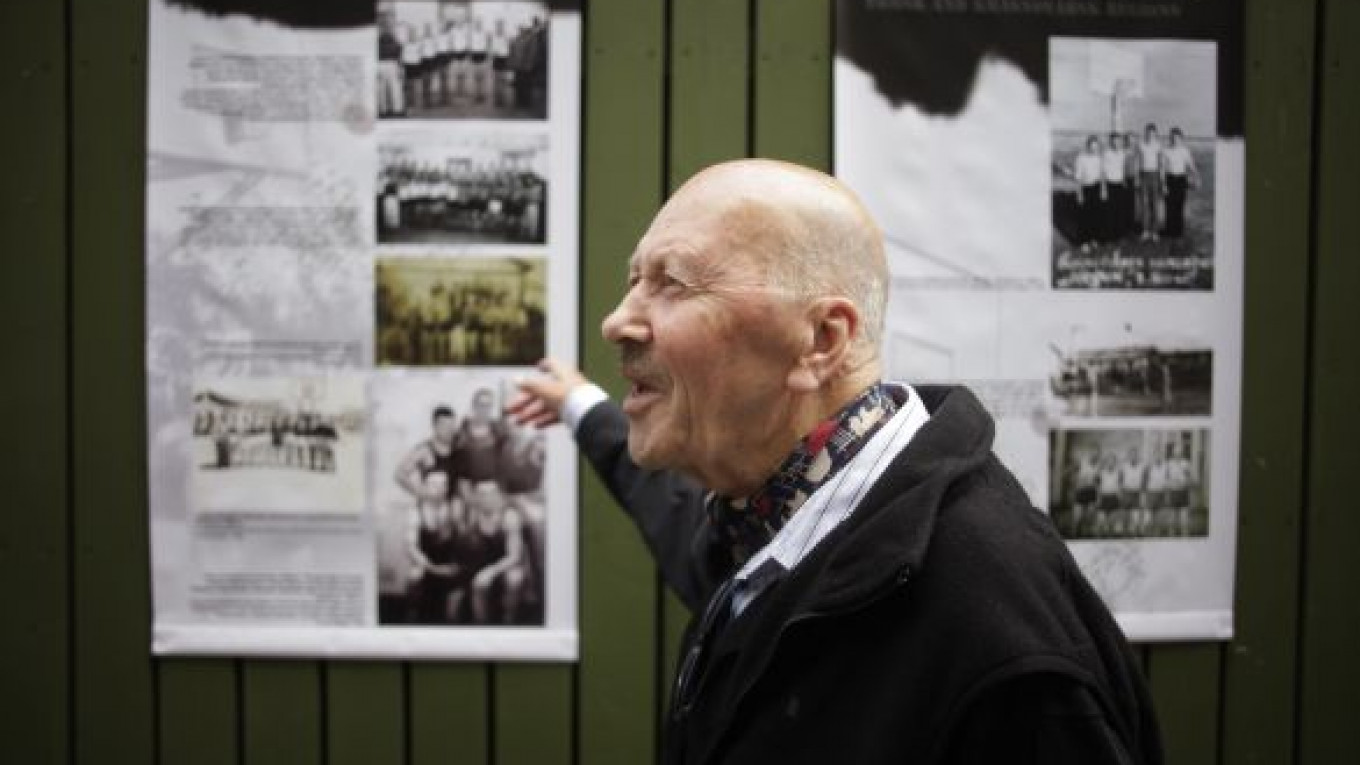VILNIUS, Lithuania — Forced labor camps were meant to crush opponents under the regime of Soviet dictator Josef Stalin, but basketball helped them survive, an exhibition in former Soviet state Lithuania shows.
About 150,000 Lithuanians were sent to the camps, known as gulags after their Russian acronym, and another 132,000 were deported to live in far-flung parts of the former Soviet empire by 1953. About 50,000 perished due to lack of food, illness, harsh weather and hard labor.
“In a place where everyone was forced to fight for himself, it was necessary to find something that could unite people and preserve their pride. Basketball became such a thing,” said Vilma Juozeviciute, the curator of the exhibition.
The show opened last week at the former headquarters of the feared KGB secret police, which is now a museum, in the Lithuanian capital Vilnius.
The exhibition has been timed to coincide with Lithuania’s hosting of the European basketball championship, which begins at the end of August.
Pictures displayed on a green wooden wall with a basketball board and a barbed-wire fence on top depict political prisoners and deportees playing basketball or proudly showing their team jerseys with Lithuanian names, such as Zalgiris, now a famous club from Kaunas, Lithuania’s second largest city.
Some pictures captured fans absorbed by the game and cheering their side, and who, it seems, had forgotten for a moment about their hardships.
“To be able to play basketball at the gulag allowed us to feel human again, not only like a slave, and to survive the captivity,” Juozas Butrimas, 84, said at the exhibition.
He said he was arrested by the KGB and sent to a forced labor camp in the Russian coal-mining region of Vorkuta in the Arctic Circle in 1945 for being a member of an underground anti-Soviet organization.
Butrimas happened to play basketball at a local team in the town of Panevezys before the KGB arrested him and three other teammates. Two of them never returned, while Butrimas came back to Lithuania 21 years later.
This year, Lithuania marks the 70th anniversary of the first Soviet deportations after the Baltic state was occupied by former Soviet forces under a secret pact with Nazi Germany.
Basketball became popular in Lithuania after the country won the European basketball championships in 1937 and 1939, when it also hosted the championship.
It will once more host the European championship between Aug. 31 and Sept. 18 this year, a fact that inspired Vilnius’ KGB museum to exhibit archive pictures and documents on basketball as a means of survival in the Soviet labor camps.
The first basketball teams appeared in the early 1950s, but they sprang up across the labor camps when restrictions were eased after Soviet dictator Josef Stalin’s death in 1953, Juozeviciute said.
Latvians, Estonians, Ukrainians and others also teamed up and played the sport in the camps.
“Basketball means so much to me, and I am so proud that we are having this championship here,” Butrimas said.
A Message from The Moscow Times:
Dear readers,
We are facing unprecedented challenges. Russia's Prosecutor General's Office has designated The Moscow Times as an "undesirable" organization, criminalizing our work and putting our staff at risk of prosecution. This follows our earlier unjust labeling as a "foreign agent."
These actions are direct attempts to silence independent journalism in Russia. The authorities claim our work "discredits the decisions of the Russian leadership." We see things differently: we strive to provide accurate, unbiased reporting on Russia.
We, the journalists of The Moscow Times, refuse to be silenced. But to continue our work, we need your help.
Your support, no matter how small, makes a world of difference. If you can, please support us monthly starting from just $2. It's quick to set up, and every contribution makes a significant impact.
By supporting The Moscow Times, you're defending open, independent journalism in the face of repression. Thank you for standing with us.
Remind me later.






